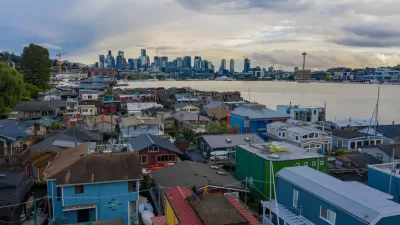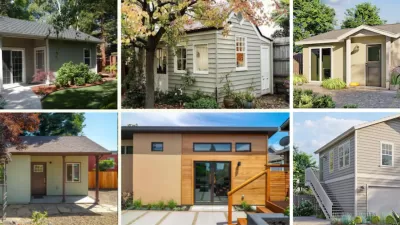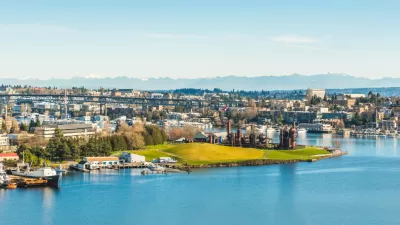One resident argues that adding a unit for long-term rental is too expensive and difficult, especially when compared to the city’s ‘super easy’ process for permitting a short-term or vacation rental.

Despite the city’s housing affordability crisis and official pledges to support increased housing production, one Seattle resident found that the process of converting his basement to an apartment for long-term renters is “painful, expensive, and risky,” unlike the “super simple” process for adding a short-term rental unit, a practice that many housing advocates blame for reducing the supply for long-term renters.
Writing on his experience in the Seattle Times, Eric Fisk notes that “For a short-term rental on your property there are no city inspections or standards for renting out your space beyond a minimal cost for registering with the city.” (According to the city’s website, some STRs, such as those that are not the owner’s primary residence or are a dedicated unit, are required to comply with the Rental Registration and Inspection Ordinance). However, adding an Attached Accessory Dwelling Unit (AADU) for long-term rental is trickier. For example, “One critical rule is that you cannot put tenants in a finished garage space if you are in a single-family zone, even if removing that parking would create new on-street parking in front of your driveway.”
According to Fisk, this has led to a huge imbalance in short-term and long-term rentals in Seattle, with only around 1,000 AADUs built since the city passed its Housing Affordability and Livability Agenda in 2016.
Fisk suggests several ways to remedy the situation, including closing the regulatory gap, waiving parking requirements for certain single-family homes, eliminating permitting fees, and providing more resources to homeowners who want to convert parts of their homes to AADUs.
FULL STORY: If Seattle cares about affordability, why does it make it so hard to add basement apartments?

Study: Maui’s Plan to Convert Vacation Rentals to Long-Term Housing Could Cause Nearly $1 Billion Economic Loss
The plan would reduce visitor accommodation by 25,% resulting in 1,900 jobs lost.

North Texas Transit Leaders Tout Benefits of TOD for Growing Region
At a summit focused on transit-oriented development, policymakers discussed how North Texas’ expanded light rail system can serve as a tool for economic growth.

Using Old Oil and Gas Wells for Green Energy Storage
Penn State researchers have found that repurposing abandoned oil and gas wells for geothermal-assisted compressed-air energy storage can boost efficiency, reduce environmental risks, and support clean energy and job transitions.

Private Donations Propel Early Restoration of Palisades Playground
Los Angeles has secured over $1.3 million in private funding to restore the Pacific Palisades playground months ahead of schedule, creating a modern, accessible space that supports community healing after recent wildfires.

From Blight to Benefit: Early Results From California’s Equitable Cleanup Program
The Equitable Community Revitalization Grant (ECRG) program is reshaping brownfield redevelopment by prioritizing projects in low-income and environmental justice communities, emphasizing equity, transparency, and community benefits.

Planting Relief: Tackling Las Vegas Heat One Tree at a Time
Nevada Plants, a Las Vegas-based nonprofit, is combating the city’s extreme urban heat by giving away trees to residents in underserved neighborhoods, promoting shade, sustainability, and community health.
Urban Design for Planners 1: Software Tools
This six-course series explores essential urban design concepts using open source software and equips planners with the tools they need to participate fully in the urban design process.
Planning for Universal Design
Learn the tools for implementing Universal Design in planning regulations.
Ascent Environmental
Borough of Carlisle
Institute for Housing and Urban Development Studies (IHS)
City of Grandview
Harvard GSD Executive Education
Toledo-Lucas County Plan Commissions
Salt Lake City
NYU Wagner Graduate School of Public Service





























